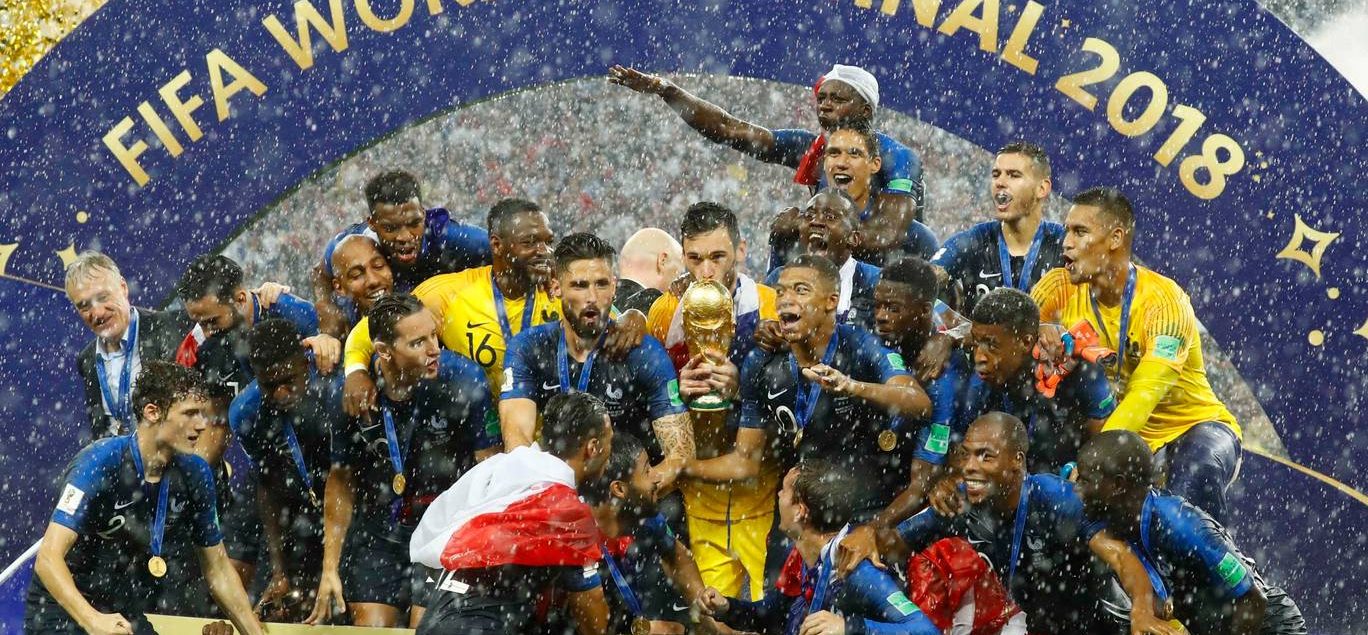World Cup 2018: The World Cup of Immigrants
The French National Team. The Albanian Eagle Celebration. Raheem Sterling. Naturalized Citizenship. All of these headlines have been the source of much debate during the 2018 World Cup and in the lead-up to before Sunday’s Final. But positive or negative, this is all the cause of human migration, which has been present ever since the existence of humanity. Until recently though, massive immigration wasn’t always the topic of conversation when talking about the biggest tournament in sports.
The 2018 World Cup had plenty of memorable moments, many of which were engineered by first and second generation immigrants. To prove a point, here are just a couple of the moments created by first and second generation immigrants: Xherdan Shaqiri and Granit Xhaka (Albanian) scoring and celebrating with the Albanian Eagle in the win over Serbia, Swiss-born Ivan Rakitić scoring two game-winning goals in Croatia’s three comeback wins, and Belguim needing Marouane Fellaini to assist Nacer Chadli (both of whom have Moroccan parents) along with Romelu Lukaku’s (parents from Congo) four goals in the World Cup to reach the semifinals. These are only some of the memorable moments that have been produced by first and second generation immigrants this tournament, and as mass migration continues, it’s likely we’ll see even more in 2022.
When Croatia and France faced off in Luzhniki on Sunday, key starters were first or second-generation immigrants. Due to the Yugoslav Wars (1991-2001), Mario Mandžukić, Dejan Lovren, Ivan Rakitić, and Mateo Kovačić all had parents that moved out of Yugoslavia and raised their children elsewhere. Mandžukić and Lovren both grew up in Germany, Mateo Kovačić was born and grew up in Austria, and Ivan Rakitić was born and grew up in Switzerland. The French team is also led by many first and second generation immigrants who had parents that moved to France in search of a better life. The team’s leader, Paul Pogba, was born to Guinean parents and has two older Guinean brothers. Other key members include: Kylian Mbappé (Cameroon and Algerian parents), Antoine Griezmann (German and Portuguese parents), Ousmane Dembélé (Senegalese and Malian parents), Blaise Matuidi (Angolan and Congolese parents), Adil Rami (Moroccan parents), and Steven N’Zonzi (Congolese parents). These are just a couple of the many first and second generation players on the French squad and there is no doubt that without them, France would not have won their second World Cup.
The 2018 World Cup will be revered for many moments, and it is clear that the topic of first and second generation players will most likely be in one of at least one of them. The impact that first and second generation immigrants have had in the World Cup this year has been vital, and should cause us all to take note: immigrants don’t take away from culture, they only add to it and improve it.
By: @Sevillista4Life
Photo: Reuters
